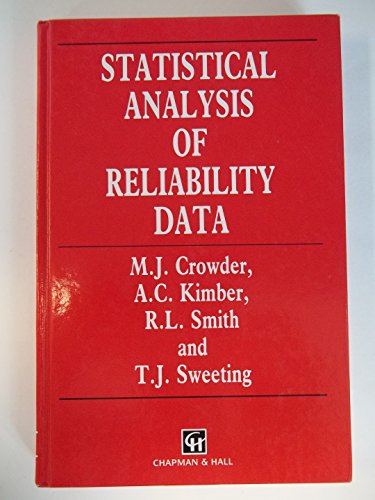Reliability is the study of the failure of systems. These systems can involve mechanical or electrical machinery, computer software, weapons or materials. Reliability theory is concerned with modelling the failure mechanisms of systems. Statistics enters reliability theory when failure is an inherently unpredictable phenomenon in which case statements about reliability can only be made in terms of probabilities. Reliability is not a physically measurable quantity like electrical resistance or elastic modulus and can only be assessed via a statistical analysis of data collected from past experience or experimentation. This book describes statistical techniques used for the assessment of reliability. Aimed at readers who have a first course in statistical methods, it develops the specific techniques used in reliability data analysis from a modern computer-orientated viewpoint. Techniques covered include probability plotting, maximum likelihood and Bayesian methods, proportional hazards modelling and the analysis of repairable systems.
Some of these techniques are already familiar to those working with survival data in a medical context, but this book describes the differences as well as the similarities when they are applied in reliability. Several data sets are included in full. The final chapter includes the subject of load-sharing systems, highlighting a class of models that have not previously been covered in book form. The book is designed for industrial statisticians, students and teachers of applied statistics, engineers and computer scientists wishing to extend their knowledge of statistics as it is applied to their disciplines.
- ISBN10 0412305607
- ISBN13 9780412305603
- Publish Date 27 June 1991
- Publish Status Active
- Publish Country GB
- Publisher Taylor & Francis Ltd
- Imprint Chapman and Hall
- Format Hardcover
- Pages 256
- Language English
